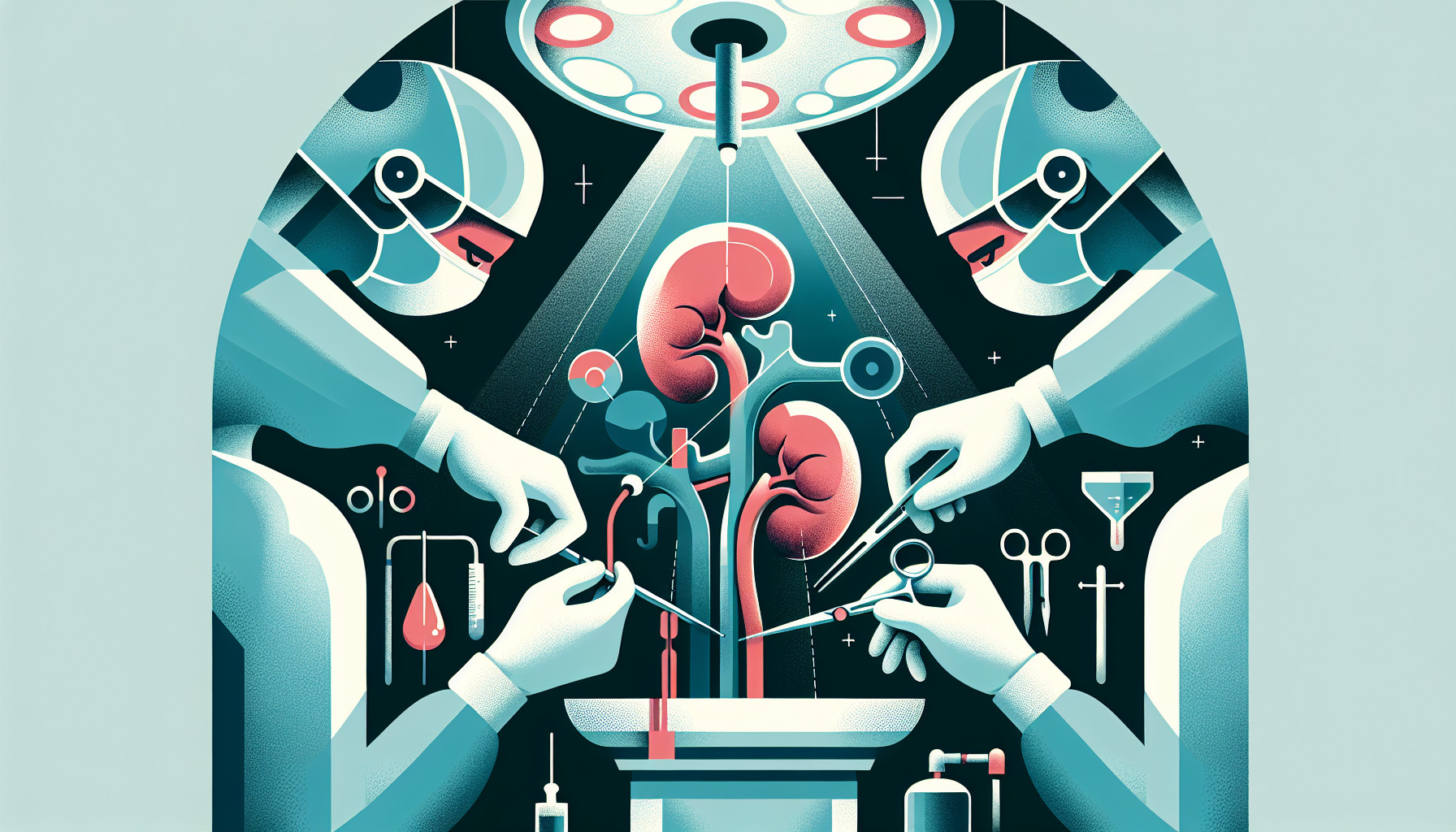Our Summary
This research paper is about a study that compared two surgical methods used for live kidney donation surgeries - robotic and laparoscopic. The study found that surgeries performed using a robot had slightly better results than those using the laparoscopic method. The robotic surgeries resulted in less blood loss, less perceived pain by the patients, shorter hospital stays, and fewer complications. However, the time it took to perform the surgery was about the same for both methods. The study concluded that robotic surgeries for kidney donations are a safe and effective alternative to laparoscopic surgeries.
FAQs
- What are the two surgical methods compared in this study for live kidney donation surgeries?
- What benefits were found in using the robotic method over the laparoscopic method in kidney donation surgeries?
- Did the study find a difference in the amount of time it took to perform the surgery between the two methods?
Doctor’s Tip
One helpful tip a doctor might give a patient about laparoscopic nephrectomy is to follow post-operative care instructions closely, including taking pain medication as prescribed, gradually increasing activity levels as advised, and attending follow-up appointments to monitor recovery progress. It is also important to stay hydrated, eat a healthy diet, and avoid heavy lifting or strenuous activities until cleared by the surgeon. Additionally, it is important to report any unusual symptoms or concerns to the healthcare team promptly. By following these guidelines, patients can optimize their recovery and minimize potential complications after laparoscopic nephrectomy.
Suitable For
Patients who are typically recommended for laparoscopic nephrectomy include those who are undergoing live kidney donation surgery, have a non-functioning or diseased kidney that needs to be removed, or have a kidney tumor that needs to be excised. Additionally, patients who are at high risk for complications with traditional open surgery may also be recommended for laparoscopic nephrectomy.
Timeline
Before laparoscopic nephrectomy:
- Patient undergoes a series of tests and evaluations to determine if they are a suitable candidate for live kidney donation.
- Patient meets with a transplant team to discuss the procedure and potential risks and benefits.
- Patient undergoes pre-operative preparations, including fasting and medication adjustments.
- Surgery is scheduled and patient arrives at the hospital on the day of the procedure.
During laparoscopic nephrectomy:
- Patient is administered anesthesia and positioned on the operating table.
- Surgeon makes small incisions in the abdomen and inserts a laparoscope and other surgical instruments.
- Surgeon removes the kidney through the small incisions.
- Surgery typically takes a few hours to complete.
After laparoscopic nephrectomy:
- Patient is moved to a recovery room and monitored closely for any complications.
- Patient may experience pain, nausea, and discomfort in the days following surgery.
- Patient is discharged from the hospital within a few days and is given post-operative instructions for care at home.
- Patient follows up with the transplant team for regular check-ups and monitoring of kidney function.
What to Ask Your Doctor
- What are the potential risks and complications associated with laparoscopic nephrectomy compared to other surgical methods?
- How does the recovery process differ between laparoscopic nephrectomy and other surgical methods?
- What is the success rate of laparoscopic nephrectomy in terms of kidney function and overall patient outcomes?
- Are there any long-term effects or complications that I should be aware of after undergoing laparoscopic nephrectomy?
- How experienced are you in performing laparoscopic nephrectomy procedures, and what is your success rate with this method?
- Are there any specific pre-operative or post-operative instructions I should follow to ensure the best possible outcome from laparoscopic nephrectomy?
- How does laparoscopic nephrectomy compare to other surgical methods in terms of cost and insurance coverage?
- Are there any specific lifestyle changes or precautions I should take after undergoing laparoscopic nephrectomy?
- What is the expected recovery time and when can I return to normal activities after undergoing laparoscopic nephrectomy?
- Are there any alternative treatment options or surgical methods that I should consider before deciding on laparoscopic nephrectomy?
Reference
Authors: Papa S, Popovic A, Loerzel S, Iskhagi S, Gallay B, Leggat J, Saidi R, Hod Dvorai R, Shahbazov R. Journal: Int J Med Robot. 2023 Dec;19(6):e2550. doi: 10.1002/rcs.2550. Epub 2023 Jul 15. PMID: 37452584
